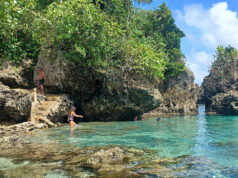Nestlé starts delivery service for its milk, which includes recycling of used cartons
THERE IS not question that by nurturing the planet, you nurture your kids. Nestle’s subscription service, with the help of goodfood.ph — think of it as having milkmen like the days of yore — makes it easier for parents to do the same.
Families can sign up at https://subscriptions.goodfood.ph/ready-to-drink to subscribe to a milk delivery service, offering Nestlé products Chuckie, Milo Ready-to-Drink, Bear Brand Yogu, and Nestle Fresh Milk, Low-Fat Milk, and Non-Fat Milk. The subscription plans can cost from P629 for 24 cartons of Chuckie, to P1,239 for more flexible options.
In the spirit of sustainability, the used milk cartons will also be collected from the subscribers and brought to a partner upcycling facility.
“For now, this initiative focuses on collecting the used beverage cartons of our subscribers, regardless of the manufacturer or brand, for our upcycling initiatives. In the Philippines, there are current recycling facilities that can take in UBCs, making this type of packaging recyclable,” said Veronica Cruz, Business Unit Manager of the Nestlé Ready-To-Drink portfolio.
According to Ms. Cruz, the collected cartons will be sent to a partner paper mill in Bulacan that recycles them. The fiber in the cartons will be used to make craft paper products such as notebooks, paper bags, and the like. Later in the year, machinery to turn UBCs into chipboard or roofing sheets material will be operational.
“Tackling the problem of plastic waste in the environment and arriving at sustainable solutions are of paramount importance to Nestlé. It is for this reason that our vision is that none of our packaging, including plastics, should end up in the landfill or as litter, including in seas, oceans, and waterways. We remain steadfast in our commitment that 100% of our packaging should be recyclable or reusable by 2025,” she said. “While we continue to work on sustainable packaging for our other products, we also focus on collection and recycling.” These plans include partnerships with LGUs in places such as Bulacan, Cagayan de Oro, and Isabela. According to Ms. Cruz, they have partnerships with start-ups and social enterprises to recycle sachets into eco-bricks and eco-pavers for building homes. — JLG



